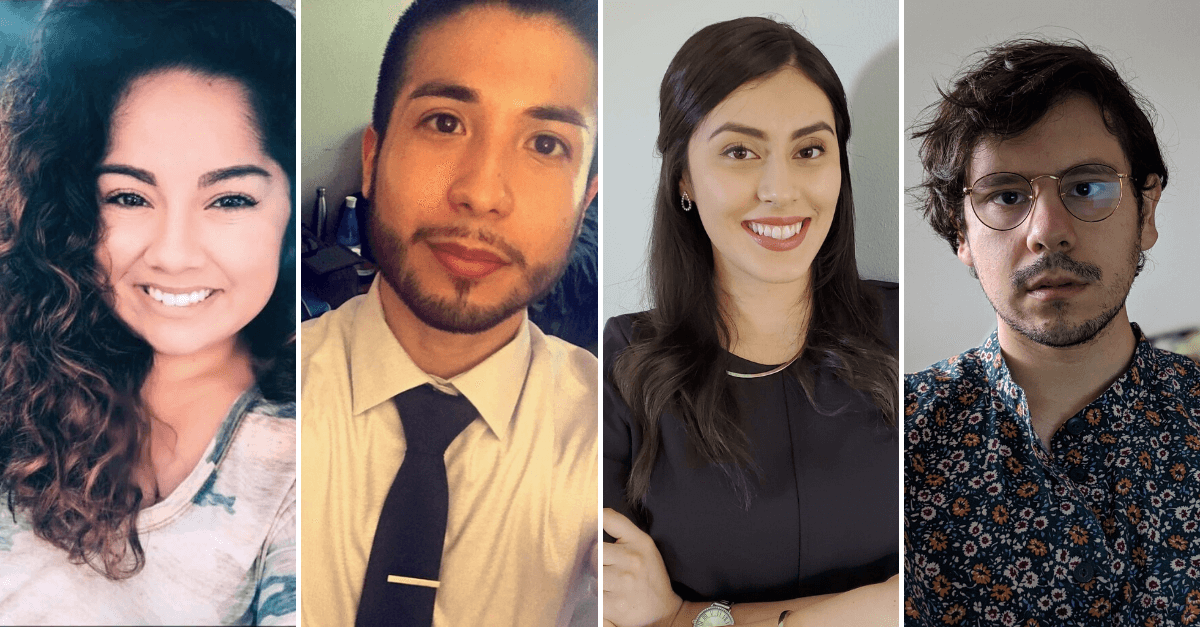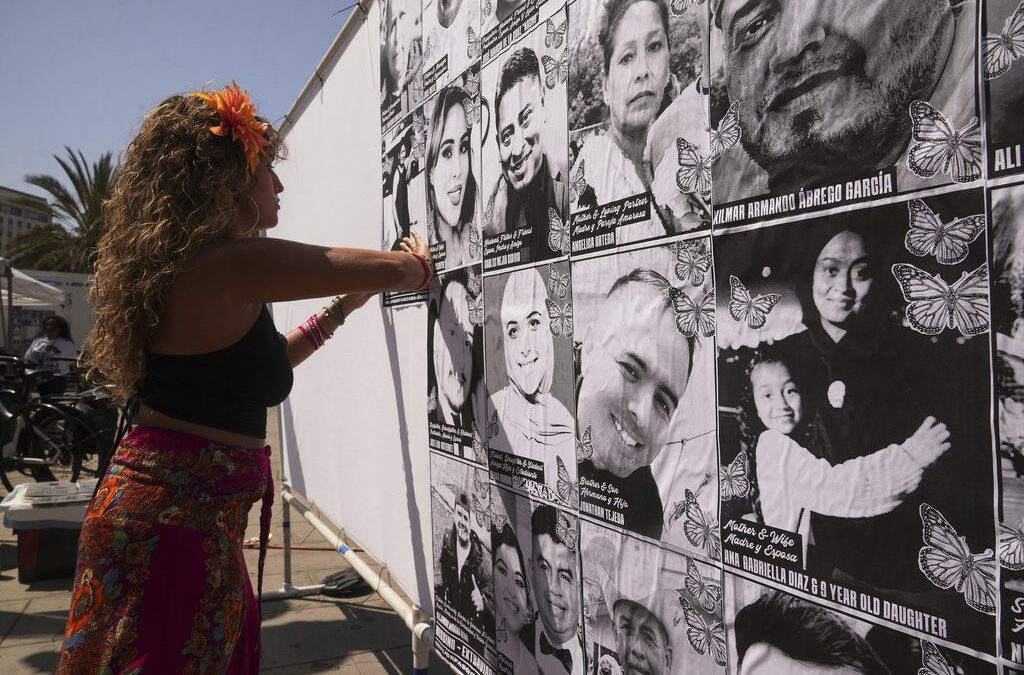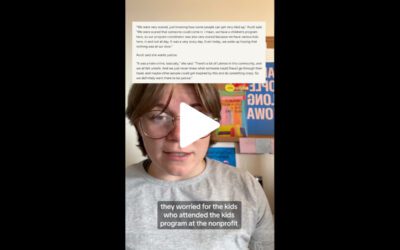
After a few weeks of talking to Latino and other immigrant workers from the meat packing industry, I realized that many of them have two significant things in common: One is fear of losing their jobs, second is the resounding voice of their children.
This new generation of young professionals are scared and angry. They have seen their parents mistreated and ignored in the workplace. They are not afraid to share their emotions and viewpoints.
This contrast during times of great uncertainty deserves our attention, so I decided to reach out to four of them and get their perspectives.
Some insist on putting all Latinos in the same box, yet there are many differences among us based on how long we have been in this country. Our conversations were difficult given that some relatives were still in the hospital with COVID-19. We wanted to know their stories, too.
[inline-ad id=”1″]
Nancy Fregoso, 25, completed her master’s degree in counseling and works for a school in Des Moines. Her parents are immigrants and she is a citizen. Nancy has several family members working at a meat packing plant in Siouxland. All of them have been tested positive for COVID-19.
“When all this started, I was scared because my parents didn’t have the knowledge about this virus until two or three weeks ago,” Nancy said. She told her parents to stop going to work because she knew the risk of so many people working close together.
According to Nancy, the popular belief among workers was that people would get infected in big cities, but not in small towns. But it happened, and it happened fast.
She is upset with the plant because they never told their employees about workers who were already ill with the coronavirus, and, when asked, nobody in a supervisory capacity said anything. The plant also failed to provide basic education about the virus and did not take any safety measures.
“I would like to do something to hold these companies accountable, but my relatives are afraid to lose their jobs. I hope one day there’s justice for the workers,” Nancy said. “I’m tired of seeing that we are treated like second-class citizens.”
[inline-ad id=”0″]
Edgardo Ramirez, 27, holds a BA in psychology. He currently works in Chicago for Northwestern University at the Center for Health Equity Transformation. His parents are from Mexico and he was born in California. His dad works at a meat packing plant in Iowa and tested positive for COVID-19 last week.
As we talked, Edgardo described his reaction since he works in the academic health sector.
“Since the beginning of the pandemic I started feeling anxious thinking about my family and the high possibility of them becoming infected,” he explained. “I just wanted to protect them and although it was spreading fast in big cities, I knew it was a matter of time before it would hit small towns. I also knew my dad’s working conditions and the potential of it becoming a hot spot, and that is precisely what happened.”
The center Edgardo works for focuses on health disparities, inequities and how many people of color share a disproportionate burden of illnesses and diseases.
“It’s so surreal and I’m still processing it,” he said.
[inline-ad id=”2″]
His father started having symptoms, but not a fever, so he kept working because he thought it was allergies. The plant where he works was not fully implementing CDC guidelines except for taking employees’ temperatures as they came into work. Edgardo kept telling his dad to stop working, but his dad told him the company wanted them to keep working. He also was concerned about losing his job.
On April 21, a Smithfield Foods’ spokesperson blamed Latinos for spreading the virus citing cultural characteristics such as how Latinos congregate and live.
“This was a slap in the face to the community and a racist insult to say the least,” said Edgardo.
On the other hand, they are now called “essential workers,” yet they do not seem to be treated as such.
“Historically, the industry has set in place inequitable policies towards workers that by nature exploit them; you add a pandemic to that, it’s just an additional layer of exploitation that surfaces in the midst of the crisis,” Edgardo said.
[inline-ad id=”3″]
Veronica Guevara, 28, graduated with a degree in political science and Latin American studies. She works at a nonprofit organization as a director of equity and inclusion.
Her mom tested positive for COVID-19 a few days ago and believes she was infected at work at a food preparation facility. She went to urgent care twice and was told that she had a common cold.
“I wasn’t with her when she went there,” Veronica said. “I feel that I always have to be prepared to advocate for my parents and have to have my guard up.”
It got to the point where her mom could not breathe well anymore. They had access to an oximeter to measure her mom’s oxygen levels. Once the reading went down, they took her to the emergency room again and she was tested.
The family feels very strongly that if a doctor would have looked at her properly and taken an immigrant woman seriously, things could have been different. After her mother was admitted and after multiple attempts to find out her mom’s status, it took five days for the hospital to call them with an update.
“Having to worry about the disease is one thing, but another thing is wondering if your loved one is going to receive the care they need or even if they are going to be able to communicate adequately,” Veronica said. “It’s been a lot and we are still processing it, but we are relieved that she’s at home now.”
[inline-ad id=”4″]
Alejandro Ortiz, 25, is an information technology professional. He holds a business management and business information systems degree. His parents live in Sioux City, but are originally from Mexico. They moved to this country in the 1980s. Mom, dad and other members of his extended family work at meat packing plants in the Siouxland area.
Alejandro has volunteered for various political campaigns in the past. He feels people need someone to represent them. One of his cousins is currently in the hospital with COVID-19.
Alejandro’s main concern is that his parents have underlying health conditions, yet they had to keep working. Not only are relatives ill with the virus, but many continue to work and risk contracting the virus. Their circumstances are layered with inequality and compounded with a pandemic.
Once sick, explicit and implicit biases extend to health care, medical treatment, access to resources, education and understanding the multiple systems that may help them.
[inline-ad id=”5″]
Listening to the different accounts of these concerned and brave young people reminds me of the sacrifices their parents made to give their children a better future and they have. Today I am reminded of one of my favorite Latino icons and labor leader, Cesar Chavez who said: “You cannot un-educate the person who has learned to read. You cannot humiliate the person who feels pride. You cannot oppress the people who are not afraid anymore.”
These are outspoken, educated, and passionate professionals that are intrinsically connected to those mistreated workers in rural Iowa. They represent the largest and fastest growing segment of our state’s population. Let us not forget their roots and their stories because they will become our leaders of tomorrow.
Take care, old and young.
by Claudia Thrane
Posted 4/28/20
Iowa Starting Line is an independently-owned progressive news outlet devoted to providing unique, insightful coverage on Iowa news and politics. We need reader support to continue operating — please donate here. Follow us on Twitter and Facebook for more coverage.

AG Bird drops suit to defund Winneshiek Sheriff
The Iowa Attorney General is dropping her lawsuit against the Winneshiek County Sheriff over a social media post. Bird says the county is in “full...

Pascual Pedro-Pedro not the only one: Immigration arrests, deportations triple in Iowa
Immigration arrests and deportations in Iowa have tripled. You think Iowa is hollowing out now? It's about to get worse. Pascual Pedro-Pedro, the...

Trump administration hands over Medicaid recipients’ personal data, including addresses, to ICE
WASHINGTON (AP) — Immigration and Customs Enforcement officials will be given access to the personal data of the nation’s 79 million Medicaid...

ICE in Iowa: West Liberty man with no criminal record detained
It's happening in Iowa. Pascual Leonardo Pedro-Pedro, 20, of West Liberty, went to a routine annual immigration check-in on July 1—abiding by what...

No county sheriffs have signed ICE agreements in Iowa
Immigration and Customs Enforcement (ICE) is raiding workplaces across the country, wearing tactical gear (and at times arriving in armored...

Immigrant rights group claims Iowa workers’ civil rights were violated in traffic stop
Escucha Mi Voz Iowa and community members from the Iowa City Catholic Worker filed a complaint with the state, alleging an Iowa State Trooper...



